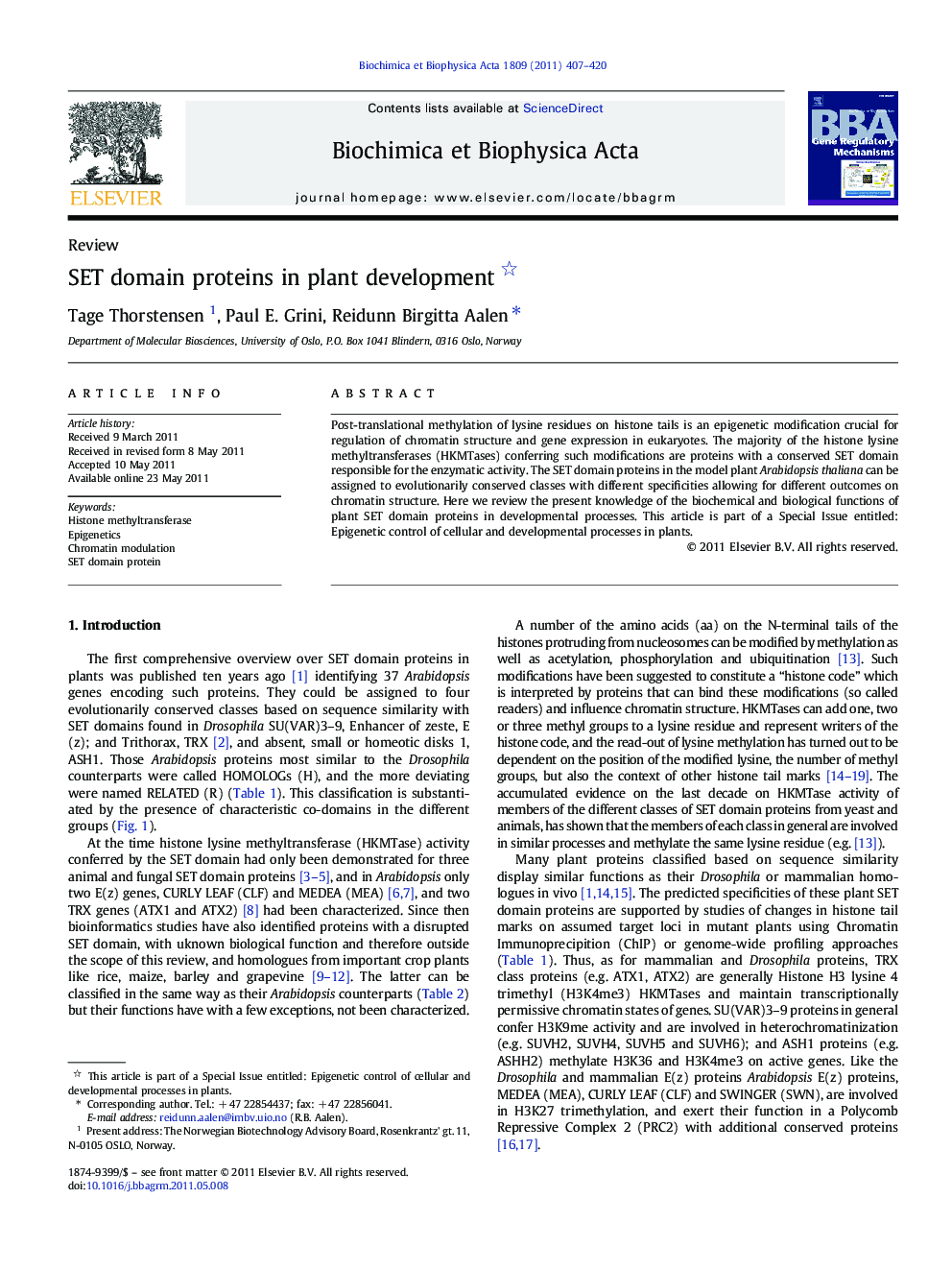| Article ID | Journal | Published Year | Pages | File Type |
|---|---|---|---|---|
| 1946663 | Biochimica et Biophysica Acta (BBA) - Gene Regulatory Mechanisms | 2011 | 14 Pages |
Post-translational methylation of lysine residues on histone tails is an epigenetic modification crucial for regulation of chromatin structure and gene expression in eukaryotes. The majority of the histone lysine methyltransferases (HKMTases) conferring such modifications are proteins with a conserved SET domain responsible for the enzymatic activity. The SET domain proteins in the model plant Arabidopsis thaliana can be assigned to evolutionarily conserved classes with different specificities allowing for different outcomes on chromatin structure. Here we review the present knowledge of the biochemical and biological functions of plant SET domain proteins in developmental processes. This article is part of a Special Issue entitled: Epigenetic control of cellular and developmental processes in plants.
Research highlights► SU(VAR)3–9 proteins control transposons and epialleles importance for development. ► H3K27me1 HKMTases are controlling replication of heterochromatin DNA. ► ATXR3 and ASHH2 are of fundamental importance for growth and reproduction. ► SET domain proteins are positive and negative regulators of flowering time. ► E(z) proteins work in PRC2 complexes to control transitions in plant development.
